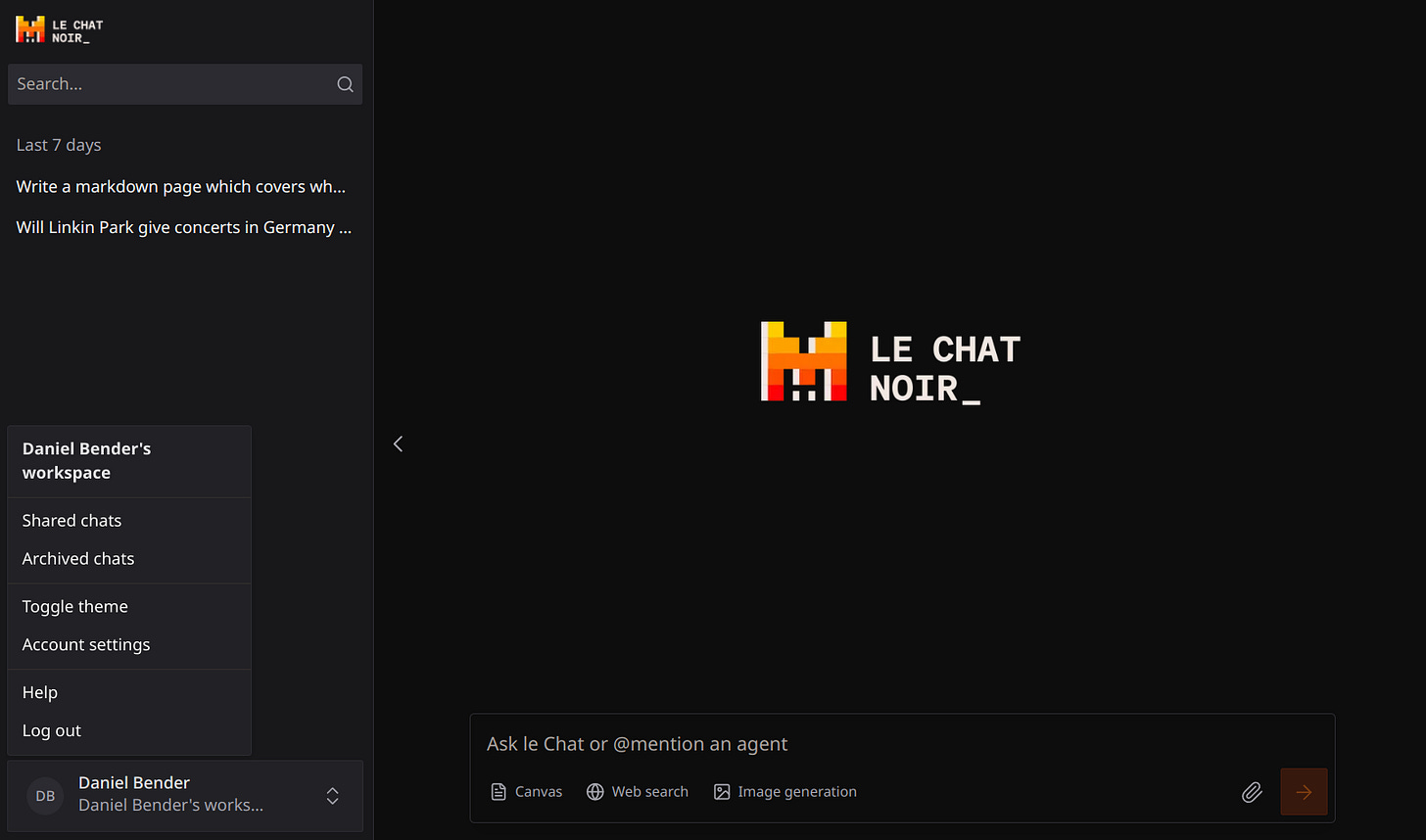🤝 AI Search Can Be Dangerous
And Why That's Not the Full Story
Dear curious mind,
Last week, I boldly declared my switch to AI search. But I have come across valid arguments against this technology that made me pause and reflect. While critics raise valid concerns about AI search being dangerous to our information processing habits, I realized that the story isn't as black and white as it might seem.
In this issue:
💡 Shared Insight
Why AI Critics Have Not Convinced Me to Abandon AI Search
📰 AI Update
Snipd: Chat With Podcast Episodes to Extract Information
European Free ChatGPT Competitor: Mistral Adds Web-Search, Image Creation and Canvas to Le Chat
Black Forest Labs Unveils FLUX.1 Tools for Advanced Image Manipulation
🌟 Media Recommendation
The Critical Voice in the AI Discourse of Emily M. Bender
💡 Shared Insight
Why AI Critics Have Not Convinced Me to Abandon AI Search
Last week, I wrote about how AI-powered search had become my daily driver. While doing my research for this article, I encountered a thought-provoking 𝕏 thread and related article by Emily M. Bender, a renowned computational linguistics professor teaching at the University of Washington. Despite sharing my last name, our views on AI search tools couldn't be more different. Her critique made me question the article I was writing and let me reflect deeply on my search habits – but ultimately reinforced my conviction that AI search represents the future.

Emily M. Bender argues against using Large Language Models (LLMs) and chatbots for information access, as these systems are just statistical models producing plausible-sounding text without real understanding. She suggests that traditional search better serves information by showing multiple sources and encouraging critical evaluation.
Her arguments against AI search:
Critical thinking: AI search skips important steps in how we normally process and understand information
Verification: People don't take time to check if sources are trustworthy or accurate
Passive: The chat-like format makes users more likely to accept answers without questioning
Accuracy: Even when sources are cited, AI summaries can still be incomplete or wrong
All of her concerns are valid, but I believe the answer lies in how we use these tools. AI search is valuable when used as an assistant rather than an oracle – a starting point for exploration rather than an endpoint for answers.
The key is developing a thoughtful approach:
Use AI search to efficiently gather information
Verify important claims through cited sources
Maintain critical thinking and skepticism
Ask the AI for multiple perspectives and sources
Be aware of the tool’s limitations and potential biases
While Emily M. Bender expresses compassion for those of us who use and enjoy these tools, I believe her critique misses how AI search can actually enhance critical thinking when used thoughtfully. Yes, we should be cautious about blindly accepting AI-generated responses. But the solution isn't to cling to traditional search engines that are increasingly cluttered with SEO-optimized content and ads.
The future of information access isn't about preserving traditional search methods – it's about leveraging AI tools responsibly while maintaining our critical thinking skills. Traditional search engines will likely evolve to incorporate AI features because the efficiency gains are too significant to ignore. The key is developing good habits for using these powerful tools.
I am convinced that AI search, used responsibly, represents a superior way to access and process information in our increasingly complex world.
📰 AI Update
Snipd: Chat With Podcast Episodes to Extract Information (@KevinBenSmith on 𝕏)

I'm really impressed after my initial tests. It's like a dream come true. Every response comes with direct links back to the audio transcription (long press on the timestamp), so you know exactly where each piece of information comes from. The history feature keeps track of your conversation, and you can dive deeper with follow-up questions. Moreover, replies can be quite long if this is required to answer your question. 👏
European Free ChatGPT Competitor: Mistral Adds Web-Search, Image Creation and Canvas to Le Chat (Mistral blog)
French Mistral AI's partnership with Germany's Black Forest Labs for image creation demonstrates how EU collaboration can create compelling alternatives to U.S. AI giants. This is European innovation at its finest!
Black Forest Labs Unveils FLUX.1 Tools for Advanced Image Manipulation (Black Forest Labs Blog)

The overall capabilities demonstrated in this release are simply stunning. Every example showcases an impressive quality - it's clear that FLUX.1 Tools is setting new standards for what's possible!
🌟 Media Recommendation
The Critical Voice in the AI Discourse of Emily M. Bender
Emily M. Bender, a distinguished computational linguistics professor at the University of Washington, offers essential critical perspectives on AI through multiple channels:
Podcast: Mystery AI Hype Theater 3000
Newsletter: Mystery AI Hype Theater 3000
Academic research: Profile at University of Washington
While my personal views often differ from hers, I find her work invaluable for several reasons:
Her expertise in computational linguistics helps to explain technical limitations of language models
She challenges common AI narratives with well-researched arguments
Her critical analysis encourages more thoughtful and responsible AI development, deployment and usage
If you're optimistic about AI's potential, engaging with critical perspectives is crucial for developing a balanced understanding. Emily M. Bender's work stands out for its academic grounding and clear articulation of concerns about AI systems. Her podcast and blog are particularly accessible for those wanting to understand the potential risks and limitations of the current AI technology.
Disclaimer: This newsletter is written with the aid of AI. I use AI as an assistant to generate and optimize the text. However, the amount of AI used varies depending on the topic and the content. I always curate and edit the text myself to ensure quality and accuracy. The opinions and views expressed in this newsletter are my own and do not necessarily reflect those of the sources or the AI models.


